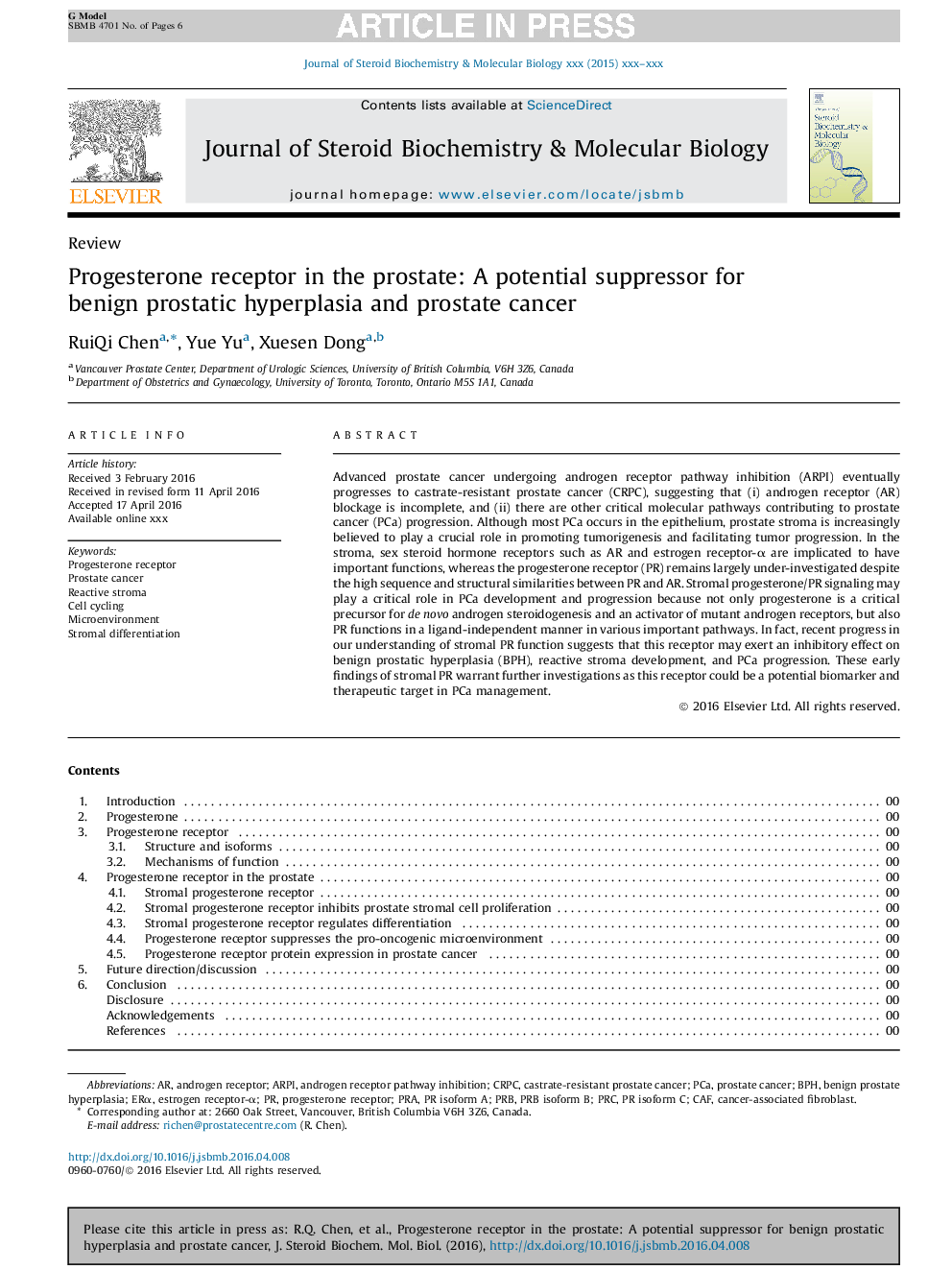| Article ID | Journal | Published Year | Pages | File Type |
|---|---|---|---|---|
| 5513183 | The Journal of Steroid Biochemistry and Molecular Biology | 2017 | 6 Pages |
Abstract
Advanced prostate cancer undergoing androgen receptor pathway inhibition (ARPI) eventually progresses to castrate-resistant prostate cancer (CRPC), suggesting that (i) androgen receptor (AR) blockage is incomplete, and (ii) there are other critical molecular pathways contributing to prostate cancer (PCa) progression. Although most PCa occurs in the epithelium, prostate stroma is increasingly believed to play a crucial role in promoting tumorigenesis and facilitating tumor progression. In the stroma, sex steroid hormone receptors such as AR and estrogen receptor-α are implicated to have important functions, whereas the progesterone receptor (PR) remains largely under-investigated despite the high sequence and structural similarities between PR and AR. Stromal progesterone/PR signaling may play a critical role in PCa development and progression because not only progesterone is a critical precursor for de novo androgen steroidogenesis and an activator of mutant androgen receptors, but also PR functions in a ligand-independent manner in various important pathways. In fact, recent progress in our understanding of stromal PR function suggests that this receptor may exert an inhibitory effect on benign prostatic hyperplasia (BPH), reactive stroma development, and PCa progression. These early findings of stromal PR warrant further investigations as this receptor could be a potential biomarker and therapeutic target in PCa management.
Keywords
Related Topics
Life Sciences
Biochemistry, Genetics and Molecular Biology
Biochemistry
Authors
RuiQi Chen, Yue Yu, Xuesen Dong,
